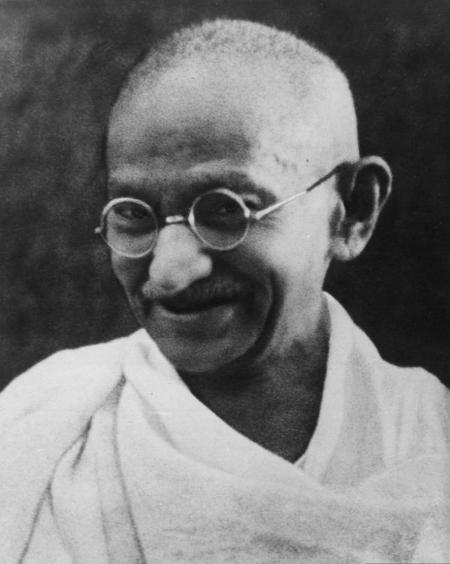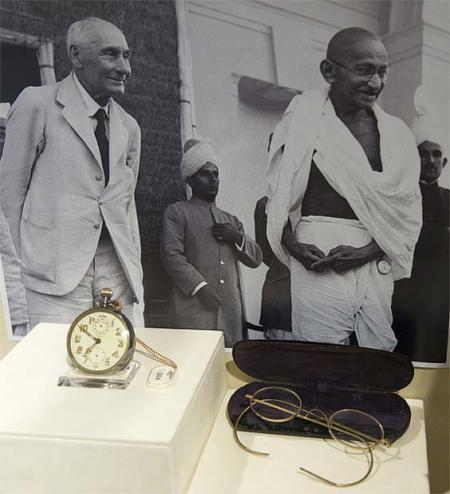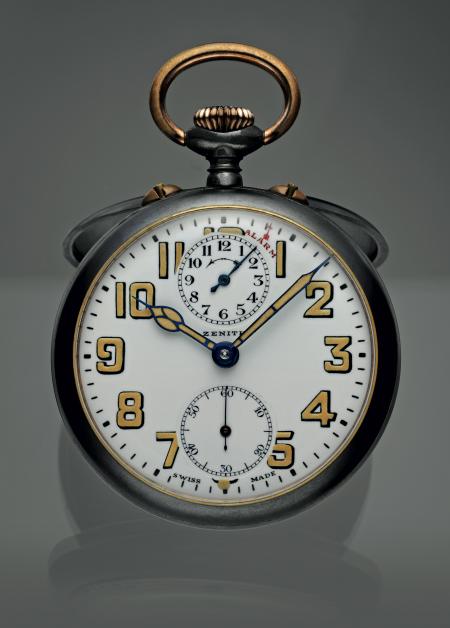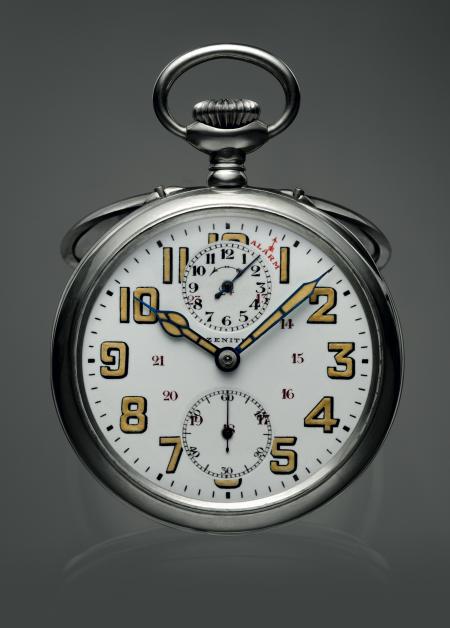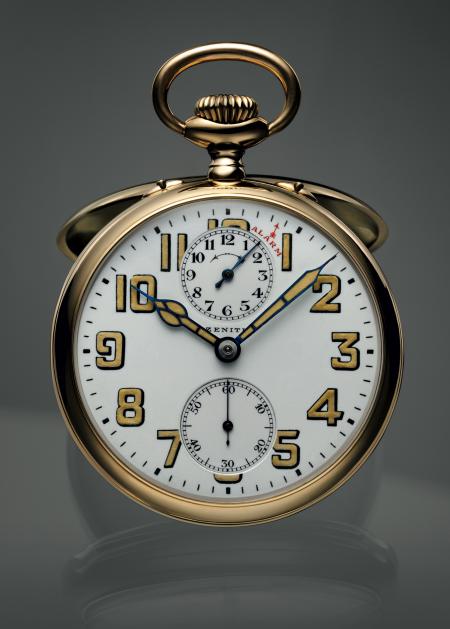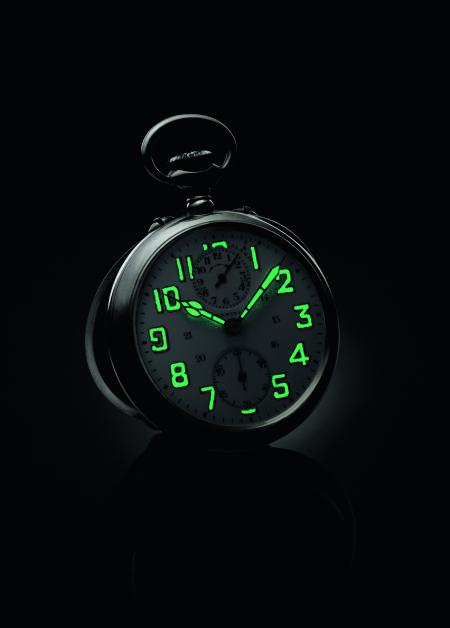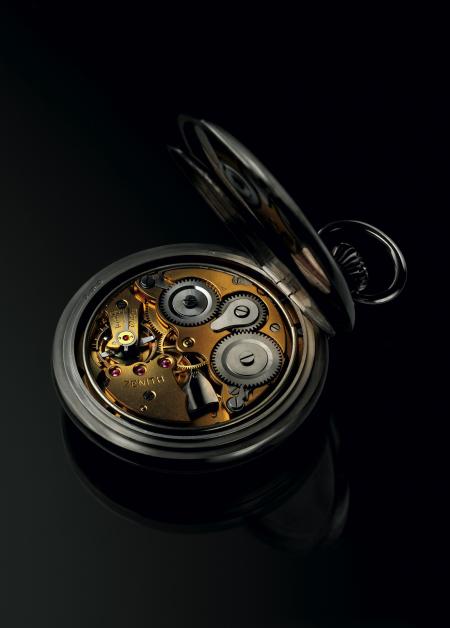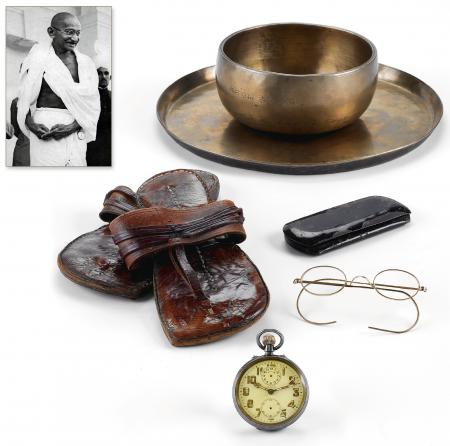Focus on a legendary Zenith pocket-watch
By MyWatch
Their extreme reliability has accompanied the most breathtaking and noblest of conquests – some of them spectacular one-off achievements, and others the work of a lifetime. Thanks to their prodigious constancy, Zenith watches have taken part in many landmark events in the history of humankind. They have charted paths to the sky and to freedom alongside men and women bold enough to believe in their dreams. In their company, discoverers, pioneers, travellers or spiritual guides have one day trusted their guiding star – perhaps because these timepieces are also the fruit of visionary thoughts.
This is the story of how, at the beginning of the 20th century, Zenith alarm pocket-watches were preparing to travel the world like authentic globe-trotters. This is how one of them was to become a rare object cherished by one of the great spiritual leaders of our time: Mahatma Gandhi.
From 1915 onwards, the Manufacture Zenith grasped the importance of producing reliable, accurate and small-sized pocket-watches suitable to accompany travellers in their peregrinations. It was a matter of meeting the demands of a market that increasingly embraced innovations, while successfully combining quality and comfort with the difficulties entailed in long-haul business or tourism-driven journeys. The alarm function is still one of the most charming horological complications, since it enables its owner to relax and enjoy complete rest without worrying about waking up. This eminently practical, personal function is also very useful because it is so easy to take along on travels to the ends of the earth by boat, plane or train.
A pioneer by nature, Zenith filed a first patent in 1913 for a sophisticated watch on which the alarm time could be set using a special bolt device. This first milestone paved the way for the pocket-watches launched in 1915 and available in several versions, meaning with a gold, silver, blackened steel or white metal case. These pocket-watches have proven themselves highly functional, since in addition to the alarm function, the case features a hinged cover at noon which, once deployed, serves as a base or carrier for the watch and therefore makes the musical chiming of the alarm more clearly audible. The latter is made by a hammer striking the gong which is independent from the case middle. With this model, Zenith offers a perfect alarm watch that is neither thicker nor bulkier than a classic pocket-watch. The double-function crown cleverly winds the movement in the usual left to right direction. In the other direction, it supplies the striking mechanism power reserve. The case middle is fitted with adjustment pushers framing the crown. The right-hand pusher serves to adjust the time and the left-hand one to adjust the alarm time – which is read off on a subdial at 12 o’clock. This dial version features luminescent Arabic numerals. The sweep seconds hand is classically positioned at 6 o’clock as on most pocket-watches, so that the dial remains uncluttered and the user is never disturbed in reading the time. The design of this alarm watch is intended to be understated and authentic, thus ensuring it is ready for any type of use its wearer may require, wherever he may find himself and in any kind of situation.
A legendary alarm
Right from the start of the 20th century, Zenith began its international expansion. India was no exception to the deployment of the brand from Le Locle which, thanks to its London-based subsidiary, the Zenith Watch Co, was able to export these timepieces as far afield as India from 1914 onwards. The new alarm pocket-watch made its first appearance in 1916 in Indian newspapers, in which it was advertised. Indira Nehru, who served as Prime Minister of India from 1966 to 1977, gifted a sterling silver version of this timepiece to her friend Mahatma Gandhi.
The latter, who appreciated the virtues of punctuality and precision, particularly when it came to prayers, made daily use of his Zenith watch and its alarm function. To his dismay, it was stolen from him during a train journey to Kampur. Saddened to have lost one of the rare material objects that he took with him everywhere and which punctuated his daily life, he wrote a couple of days later in one of his notes, dated May 28th 1947: “I may add that it had a radium disc… and also a contrivance for alarm. It was a gift to me. The cost then was over 40/-. It was a Zenith watch.”
Six months later in New Delhi, the thief who had become aware of the Mahatma’s regret regarding this loss and was consumed by remorse, asked to see Gandhi in order to return the stolen object and beg for forgiveness.
The saga of this model lasted many more years, since Gandhi gave the watch before his death to his granddaughter and assistant Abha Gandhi, and it subsequently came into the hands of private collectors.
This exceptional model has indeed experienced a truly unusual destiny, since in 2009, Antiquorum auctioneers offered a lot in one of its sales comprising Gandhi’s famous round spectacles, a bowl and a dish, an alarm watch as well as leather sandals2. These objects, all faithful companions of Mahatma Gandhi, were sold for the record sum of 1.8 million US dollars to Indian billionaire Vijay Mallya, thereby returning to their homeland.
MANUFACTURE ZENITH
Founded in Le Locle in 1865 by a visionary watchmaker, Georges Favre-Jacot, the Manufacture Zenith gained swift recognition for the precision of its chronometers with which it has won 2,333 chronometry prizes in a century and a half of existence – an absolute record in terms of pocket-watches, onboard timers and wristwatches. Having earned fame thanks to its legendary El Primero calibre – an integrated automatic column-wheel chronograph movement launched in 1969 and endowed with a high frequency of 36,000 vibrations per hour that ensures short-time measurements accurate to the nearest 1/10th of a second – the Manufacture Zenith has since developed over 600 movement variations. All Zenith watches are now fitted with an in-house Zenith movement and are developed and produced from start to finish by the Manufacture in Le Locle. The latter currently stands at the exact spot where its founder built the first company workshop – thus physically embodying a continuity that is a rarity in itself.
